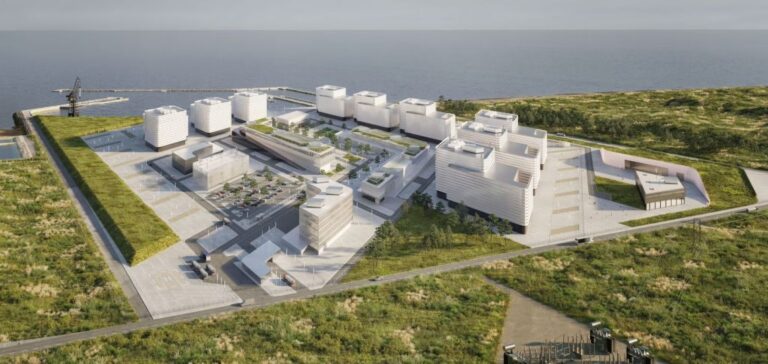Kärnfull Next, a company specialising in the development of small modular reactors (SMRs), has reached a significant milestone in its Swedish project. The company has secured the necessary land rights for the construction of a small-scale nuclear power plant in the municipality of Valdemarsvik, located in Östergötland County, southeastern Sweden. This project is part of the company’s Re:Firm South programme, aimed at increasing carbon-free, dispatchable energy production in southern Sweden.
The announcement of securing these land rights follows an initial collaboration with the landowner, Latona Group, which began in June 2024. This exclusive agreement allows Kärnfull Next to proceed with exploration for nuclear power on a site considered suitable for nuclear energy since as far back as the 1970s. Spanning over 1,300 hectares, the site is seen as an attractive option for co-location with energy-intensive industries in the 2030s, such as AI-driven data centres.
The project aims to host between four and six light-water reactors, generating a combined total of 10-15 TWh of electricity annually. This development will complement other similar initiatives in the region, all aimed at addressing Sweden’s growing energy needs while supporting the transition to clean energy.
Strategic partnership with Latona Group and Samsung C&T
As part of this project, Kärnfull Next has signed a new cooperation agreement with Latona Group, securing permanent land rights for the duration of the project. John Ahlberg, Chief Strategy Officer of Kärnfull Next, emphasised the importance of this partnership, which provides the stability necessary to proceed with permitting and detailed project planning. The project is being developed in close consultation with the municipality, regional stakeholders, and strategic partners, including the South Korean construction giant Samsung C&T.
Samsung C&T became involved in December 2024, when Kärnfull Next signed a memorandum of understanding (MoU) with the construction firm to help advance the deployment of SMRs in Sweden. The goal is to support the efficient development of the SMR park while addressing technical, economic, societal, and regulatory aspects of the project.
Towards robust and sustainable energy production
Kärnfull Next continues to expand its partnerships and research efforts for its SMR programme. In March 2022, the company signed an MoU with GE Hitachi Nuclear Energy to deploy its BWRX-300 technology in Sweden, a modular boiling water reactor. This type of reactor, among the most advanced on the market, is a central component of Kärnfull Next’s projects.
The company has also been conducting feasibility studies in several Swedish municipalities since 2022, aiming to deploy multiple SMR parks. The selection of multiple sites is expected to realise economies of scale with regard to technology selection, construction partners, power purchase agreements, and project financing.






















